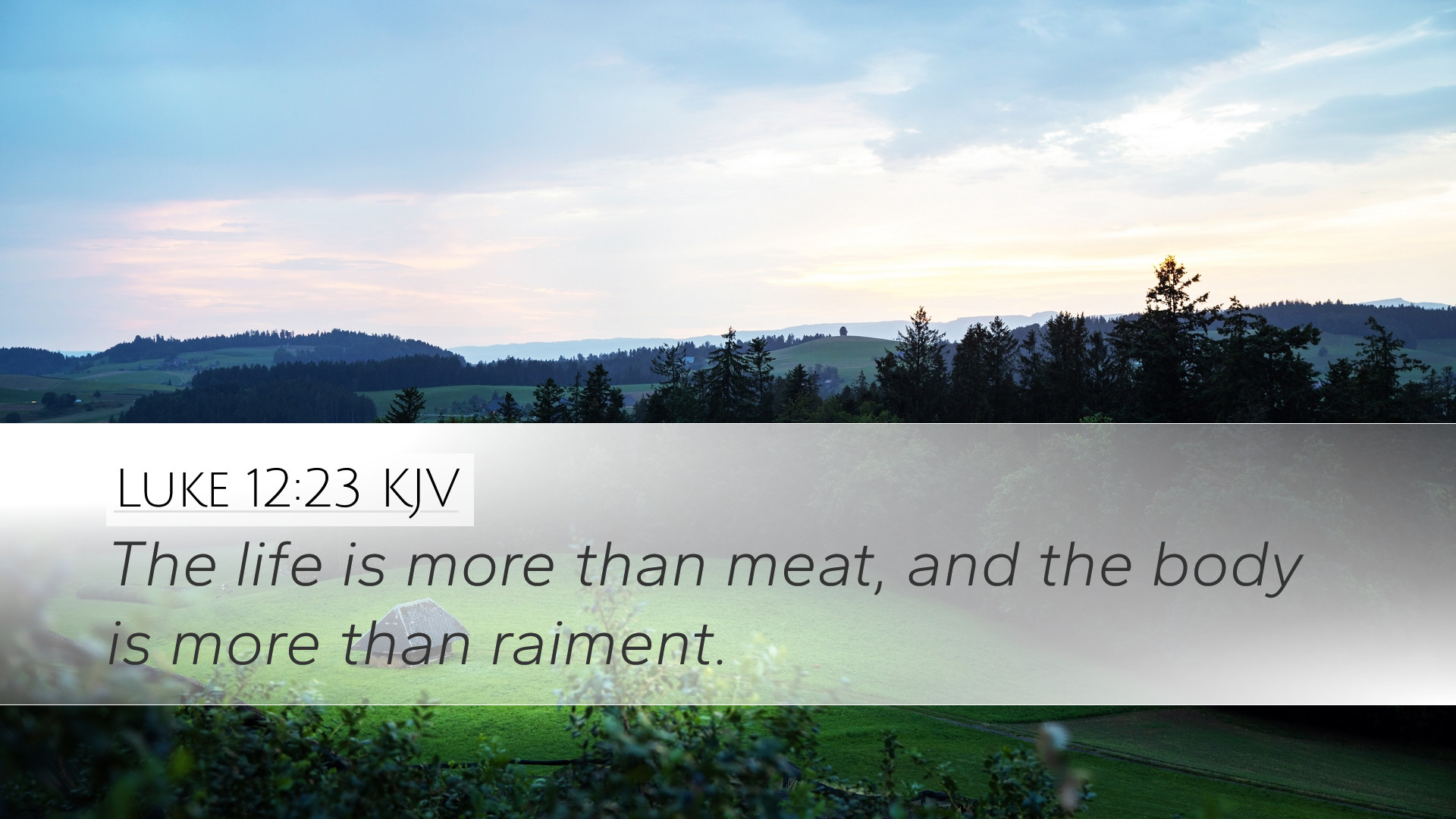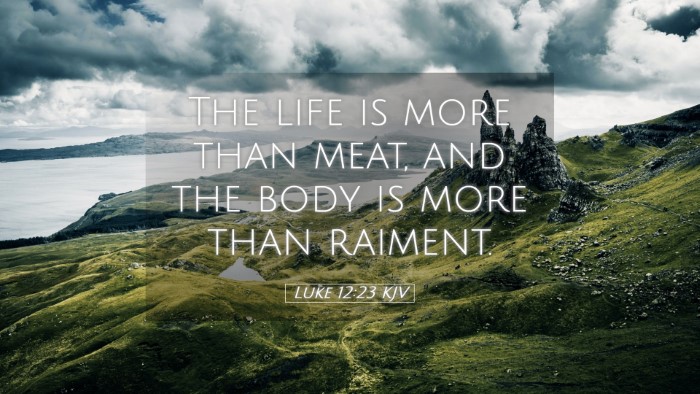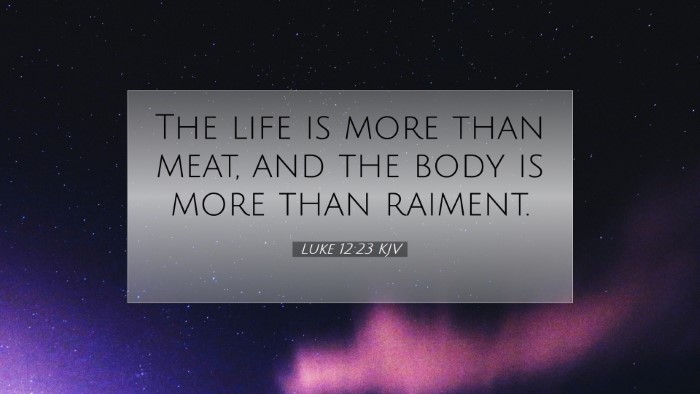Bible Commentary on Luke 12:23
Luke 12:23 states: "For life is more than meat, and the body is more than raiment." This verse delivers a profound lesson about the nature of life, urging believers to redirect their focus from bodily needs to the more substantial spiritual nourishment that sustains life.
Contextual Analysis
This passage is found within a larger discourse where Jesus teaches His disciples about anxiety and the proper priorities of life. The immediate context emphasizes the futility of worry over material provisions.
Jesus, addressing the crowd and His disciples, challenges the prevailing notion that happiness and fulfillment are tied to physical and material possessions.
Insights from Commentaries
-
Matthew Henry:
Matthew Henry highlights the superior value of spiritual life over mere biological existence. He emphasizes the importance of understanding that our existence is grounded not in temporal offerings but in eternal truths. Henry notes that focusing on material needs can distract us from our spiritual duties and growth.
-
Albert Barnes:
Barnes offers a similar perspective, reinforcing that life encompasses values that exceed physical sustenance. He notes that the verse serves as a reminder that one's worth is not determined by wealth or material goods, but by the divine purpose and spiritual development. Furthermore, he warns against the dangers of prioritizing the flesh over the spirit.
-
Adam Clarke:
Clarke delves into the philosophical and theological implications of the verse, suggesting that true life involves more than merely existing. He argues that understanding one's purpose and relationship with God supersedes physical needs, and believers are called to trust in divine provision rather than succumbing to fear and anxiety regarding earthly needs.
Theological Reflections
The message of Luke 12:23 resonates deeply with the overarching themes of trust and dependence on God. The verse is a clear admonition against materialism, reminding the faithful that the Creator of the universe is concerned with their well-being far more than the provision of food and clothing.
In a culture that often equates success with material accumulation, this verse challenges believers to re-evaluate their priorities. Just as Jesus emphasizes that life extends beyond material possession, pastors and theologians are called to guide their congregations towards a life characterized by spiritual richness rather than temporal gain.
This spiritual richness, as outlined by the commentaries, involves a robust faith, a faithful relationship with God, and an active engagement in the mission of Christ. As life is more than what we eat and wear, so too are we called to live for what is eternal, shaping our lives around the values of the Kingdom of God.
Practical Applications
- Encouragement in Anxiety:
Pastors can utilize this verse to comfort those struggling with anxiety about their future, reminding them of the Lord's provision and care.
- Focus on Spiritual Growth:
This teaching encourages believers to prioritize their spiritual life through prayer, Bible study, and community involvement over the relentless pursuit of material gain.
- Wealth and Stewardship:
Commentators suggest using this passage to guide discussions on generosity, stewardship, and the dangers of wealth accumulation in a way that detracts from spiritual focus.
Conclusion
Ultimately, Luke 12:23 serves as a vital reminder of the superior nature of spiritual life and the necessity of viewing our existence through a lens that prioritizes our divine relationship over material needs. In teaching this, churches can foster a community of faith that challenges the norms of society while embodying the principles of God's Kingdom.


